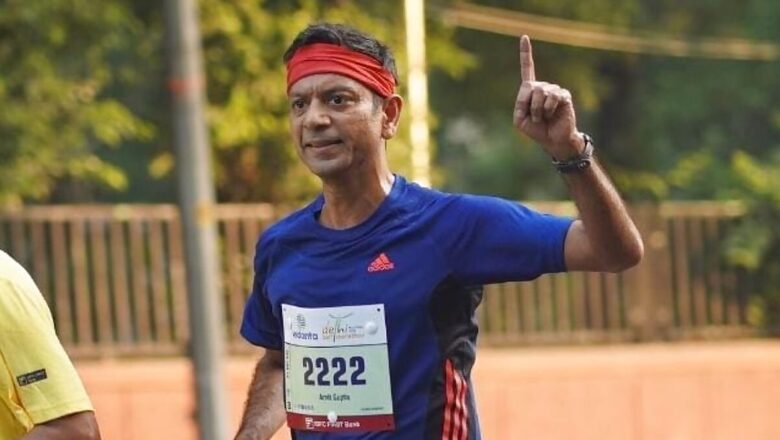
views
With the upcoming marathon, many runners – rookies and pro athletes alike – will set their sights on the finish line. To gear up for the journey, including the months of prep and the 42 kms to cover on the race day, fueling up is key.
Completing a long-distance run can be tough, especially if it’s your first marathon. While runners push the limits of their physical endurance to get ready for the big day, some forget to focus on their diets. Knowing what to eat before a marathon, and exactly how much fuel you need before, during, and after the race can be a puzzle. Fortunately, with smart nutrition, hydration, and some experimenting during training, you can learn what your body needs to cross the finish line. This will not only help you maximize your performance but also make the road to success easier.
Dr Irfan Shaikh, Associate Director, Abbott’s Nutrition business, shares tips to help you train smartly and make the most of your marathon.
- Train for successAs you train for a marathon, in addition to your running plan, having a solid nutrition plan is important. It is a good idea to choose nutrient-dense food during training. You will not perform your best on a diet of samosas and oil-rich foods .Your marathon diet should be well-balanced, with lean protein, whole grains, fruits, vegetables, and healthy fats. The most important macronutrients to focus on are carbohydrates. Protein is also key – as it can help with recovery, injury prevention, and support lean muscle.
You should also hydrate before, during, and after your runs. You need to properly rehydrate and replenish nutrients after each training session to prepare for the next one.
Many runners dine on pasta at the pre-race dinner to load up on carbohydrates — if that works for you, go for it, just focus on moderation. Try having high-carb, moderate protein meals that are low in fat, fiber, and spice. You can also try healthier carb options, like vegetables and whole grains. Also – dinner is not your only opportunity to carb load, so do not overlook meals in the days leading up to the race.
It is also important to remember that from the age of 40, people begin losing muscle mass, and can lose up to 8% every decade. , So, if you are at this stage of life and want to stay strong and active while training, you may benefit from additional supplementation, like Ensure with HMB. Containing macro nutrients (high quality protein, fat, carbohydrates), 32 micronutrients (vitamins & minerals), and HMB, such–complete, balanced nutrition supplements – can help provide energy, enhance your bone and muscle strength and immunity.
This can help you get the amount of protein you need so that your body does not break down your muscles to fuel your workouts.
Also, while it may be tempting to try a new bar you noticed the day – don’t. Stick to what you have been training with for long runs. Even slight changes, whether in diet or drinking more fluids on the course, can negatively impact your race.
A good pre-run breakfast can be whole wheat toast with egg along with fruit juice, among other options, depending on your energy needs. Also, pack your water, sports drink, energy bars, post-race recovery fuel and whatever else you usually eat on long-run mornings. It’s good to have extra fuel in hand.
With these tips, take charge of your nutrition to conquer the miles and fuel your way to the finish line – and prepare for your best race.




















Comments
0 comment